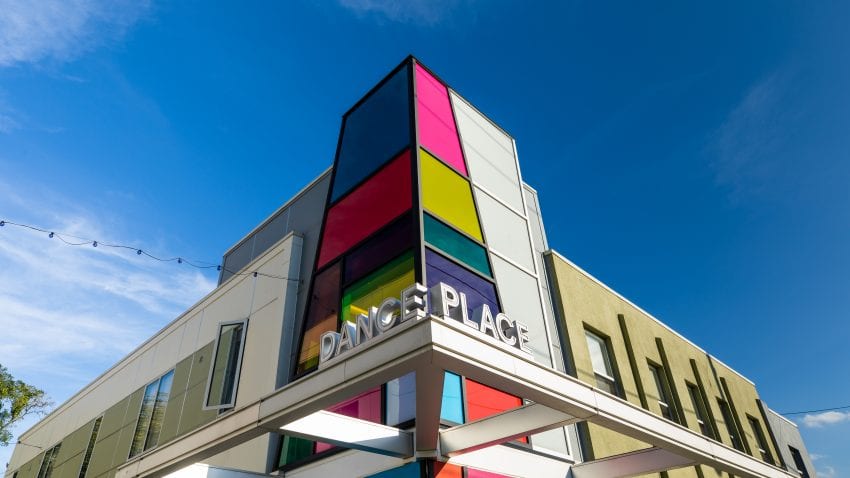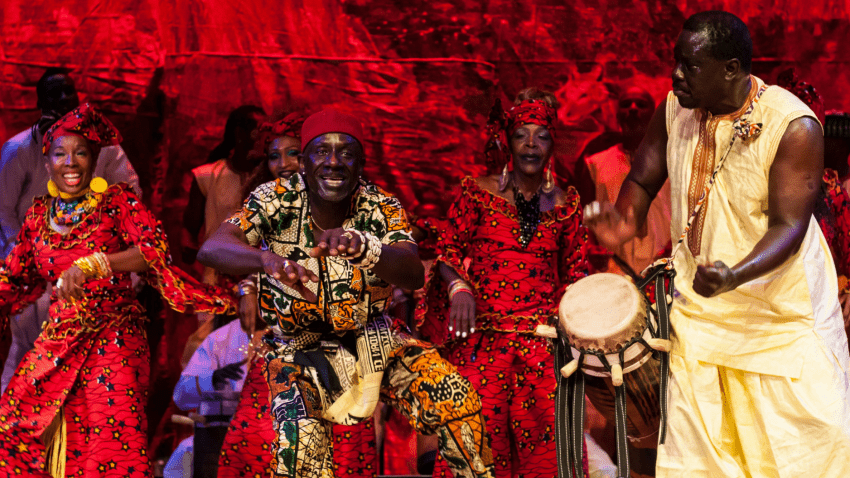
On Sunday, January 19, we had the pleasure of visiting Dance Place in the Brookland/Edgewood community of Washington D.C. Dance Place is a non-profit organization, founded in 1978, that aims to enrich the lives of community members through high quality performances, commissions, training and educational programs at the local, national, and international scale.[1] Upon researching the theater and business, I was a little astounded at the amazing and sweeping goals of the organization, but I was soon impressed by just how much this non-profit could do with its limited resources. After its large expansion from 2014-2016, the building and its area has become a vibrant community gathering place, with bright colors, interactive walls, and an eye-catching ARTSPACE neighbor. In addition, a few blocks down on eighth street, the local community hosts many independent artist studios where artists can live, create, and engage with their communities, transforming a once struggling neighborhood into a vibrant and welcoming space for locals to gather.[2] The inside of the building houses two studios, a theater, and many administrative offices.
Shortly after our arrival (and my interesting presentation), I was delighted to see the many children and community members that came in the door to be involved with the upcoming performance preparation. At the moment, it was clear to me that this organization was doing its job in its community: bringing people together through dance and dance programming. In the performance later in the afternoon, it became even more transparent.

When I entered the theater, I was surprised to see such a diverse and engaged audience, ready to take in whatever the Dance Place had programmed for them. The performance for the afternoon was the Kankouran West African Dance Company, another local non-profit dance organization. Kankouran West African Dance Company works to preserve and promote West African dance traditions with entertaining and educational programs.[3] The organization functions primarily through grants given to them by the D.C. Commission on the Arts and Humanities and individual donations.
As someone with very limited knowledge of West African culture, I found the performance greatly accessible and entertaining to a broad audience. The dancers were engaging and passionate with colorful, attractive costumes that danced as they did. It was exciting to see such a vibrant and living display of a truly rich culture; one that is important to the identities of many Americans. The company’s touching memorial to their mentor, the founding director of Howard University’s Dance Program, was touching and appropriate, choreographed to be a moving, rhythmic, and physical tribute to her work.[4] Kankouran serves as an ambassador to educate the public on the diverse cultures of Western Africa, which have influenced various parts of American culture. The founder, Assane Konte, believes that cultural education is a fundamental element in understanding the broader American experience, which I, and I’m sure many others, would agree with due to the melting pot of American identities. [5] Kankouran is a shining example of West African culture thriving in America, yet the owner’s plea for support and donations at the end of the show reminded me that the arts culture in the U.S. still struggles to keep its head above water.
[1] https://www.danceplace.org/
[2] https://www.monroestreetmarket.com/arts/
[4] Mentioned in foreword before Sunday’s performance.
